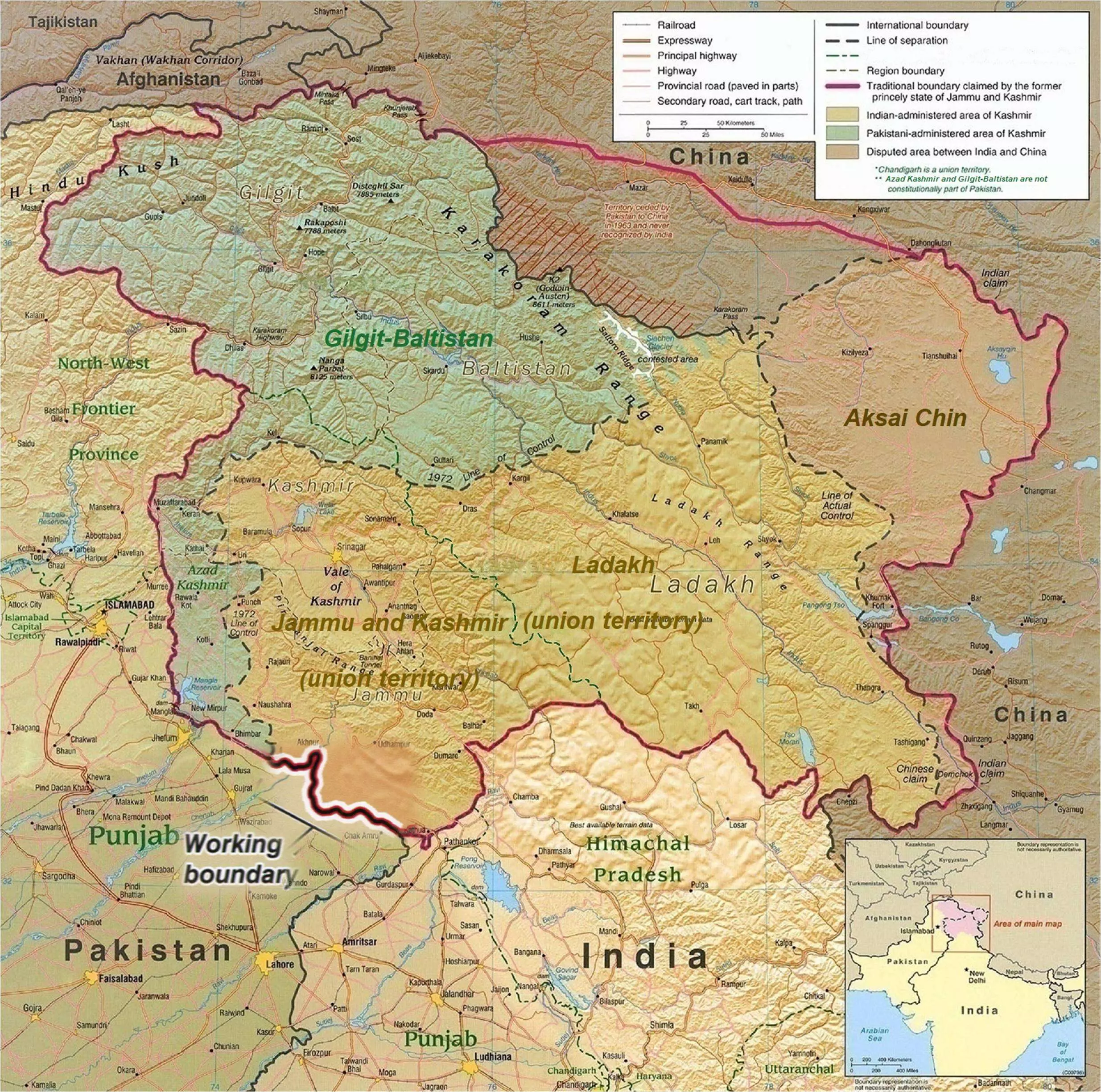Frivolous allegations
The charge against India of denying the 'right to self-determination' in J&K is hollow; write Anindita Dutta, Abhinav Mehrotra & Biswanath Gupta

In a recent event by the Pakistan Embassy in Washington to observe 'Kashmir Black Day', Pakistan's Ambassador to the US, Masood Khan, said that the right to self-determination is an inalienable right of the people of Jammu & Kashmir, and no power on Earth can deny that fundamental right. This statement raises certain important questions that need to be addressed, such as what exactly is this principle of self-determination, what is the cultural significance of Kashmir in India, and what is the possible way forward in this regard?
In simple terms, the right to self-determination is a cardinal principle in international law that permits a coherent group of people or community to determine their political fate and socio-economic and cultural status without any interference. It is an internationally accepted principle enshrined under article 1 of the United Nations Charter. The principle attained universal recognition as jus cogens after it was incorporated in the UN charter, with the United Nations as the authoritative interpreter of this principle. The international community seems to be wary that the materialization of this principle might adversely affect the territorial integrity of the state. There is a lack of normative framework regarding this principle, as it does not state clearly what constitutes a group of people and what should be the outcome of such self-determination principle i.e., independence, autonomy, secession, or assimilation that is of great significance when it comes to the issue of Kashmir?
Historically, the region of Jammu & Kashmir in India has been a landlocked region in South Asia between India, Pakistan, China, and Afghanistan. Originally, it was a territorial dispute between India and Pakistan that has now assumed multidimensional facets involving cultural, political, and religious dimensions. Following the outbreak of the dispute between India and Pakistan on the question of Jammu & Kashmir in the post-independence period, Pakistan took this issue to the UNSC for a resolution against India. On January 5, 1949, the Security Council passed a resolution that an impartial plebiscite shall be conducted to determine the self-determination of the Kashmiri people. The precondition for the plebiscite promised by the Security Council was that the contesting countries must demilitarise both sides of Kashmir, but this condition of demilitarisation was never fulfilled by Pakistan. The Indian side of Kashmir exercised their right of self-determination time and again through their participation in the electoral process of the country. Kashmiri people exercised their voting rights in 1951, forming the constituent assembly and, thereby, choosing their own government. Herein lies the contention of the Indian government that Kashmir has always been an integral part of India, and it is an internal matter of India rather than an international issue to be resolved by the United Nations Security Council.
Cultural significance of Kashmir
What needs to be understood is the fact that Jammu & Kashmir occupies a special place because of its rich and unparalleled religious and cultural heritage in the fabric of Indian society. Kashmir has always been a repository of spiritual knowledge and a perfect abode for scholars to deliberate and develop foundational knowledge of language, logic, aesthetics, religions, music, art, and sciences. These classical philosophies and traditions transcend the bounds of parochialism and continue to guide Indian cultural and religious life. What this means is despite the geographical isolation of the Kashmir valley, the region was unusually cosmopolitan, wherein traditions of Hindu, Buddhist, Jain, Central Asian, and even Mediterranean cultures freely intermingled and cross-fertilized.
In recent years, the situation in Kashmir has become tense. In 2019, the Central government revoked the special autonomy under Article 370 of the Constitution granted to Kashmir. This decision had sparked widespread protests. The situation seems to have normalised to some extent but there continues to be the need for regular evaluation of the granting of statehood to Jammu & Kashmir after considering all possible scenarios.
Thus, there comes the need to take up a three-pronged approach that combines the top Indian and different internal Kashmir groups to hold summit talks and high-level meetings, the outcome of which may have non-binding character, but it may help to enhance the rivals' will to concede. Similarly, organizing middle-range talks involving retired politicians, officers, academics, human rights activists, NGOs, and other practitioners, who engage in problem-solving discussions, can be carried out. Finally, grassroots leadership needs to be involved, which includes indigenous, local leaders, and other representatives who can engage in peace initiatives, prejudice elimination, and socio-economic collaboration.
Anindita Dutta is a PhD Candidate, Tezpur Central University, Assam; Abhinav Mehrotra is Assistant Professor of Law, OP Jindal Global University, Sonipat; and Biswanath Gupta is Associate Professor of Law, OP Jindal Global Law School, Sonipat. Views expressed are personal



